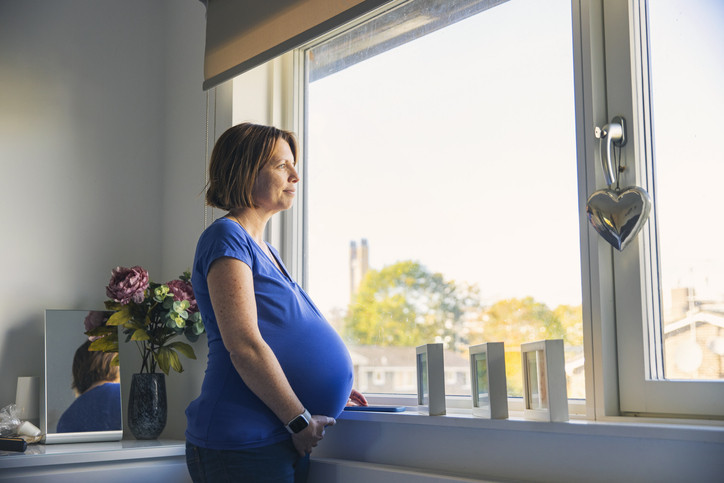
What are somatic workouts?

How to curb your stress eating

How to spot Parkinson’s disease symptoms

8 simple ways to reduce ultra-processed foods in your diet

Heart failure symptoms in women: How they’re different

GERD diet: Foods to avoid to reduce acid reflux

Strong is the new skinny

Everyday habits that sneakily weaken your bones

Don’t wait to get help for back pain

Correcting how you walk may ease osteoarthritis knee pain
Women's Health Archive
Articles
Alcohol may lower pregnancy odds in women undergoing fertility treatment — but caffeine is no problem
A 2022 study found that women undergoing fertility treatment who drank seven or more alcoholic beverages weekly were 7% less likely to become pregnant. The chances of live birth dropped 9% in women whose male partners drank that amount.
Why has my natural scent changed during perimenopause?
Many women report stronger body odor during perimenopause. It can result from a changed sense of smell; profuse sweating from hot flashes or night sweats; or greater prominence of testosterone, which attracts more bacteria to sweat.
Pressure shift
People often need several medications to adequately control high blood pressure. Doctors factor in more than age, sex, and race when deciding which of the 200-plus available blood pressure drugs might work for a person. Doctors also consider diet, activity levels, reproductive history, and other chronic conditions and medications. Consistent blood pressure control can be challenging, and doctors can collaborate with patients to minimize side effects common to blood pressure medications, such as dizziness and lightheadedness.
Should I get genetic testing for breast cancer?
Women should consider genetic testing for breast cancer if they have a personal or family history of breast or ovarian cancer, especially diagnosed at age 50 or younger; family history of BRCA1 or BRCA2 gene mutations; or Ashkenazi Jewish heritage.
Is pregnancy safe for everyone?
Simply being pregnant poses significant short-term and long-term risks to health, particularly in the US. Since the Supreme Court overturned a national constitutional right to abortion last year, choices around pregnancy have gotten even more complicated — and more dangerous for some.
Surprising foods that boost bone health
Prunes boost not only digestion but bone health as well, according to a 2022 study. Most foods touted for bone health are high in calcium. Vitamin D helps the body absorb calcium. Other surprising foods that either build bone or hinder bone loss include dried figs, canned salmon, plant milks, tofu, almonds and almond butter, and white beans. People can tally their average daily calcium consumption by reading food and drink labels. Supplements can help make up any shortfall.
Expectant mothers can rest easier about taking antidepressants
A 2022 study found that antidepressant use during pregnancy is not associated with problems in children's future brain health or behavior patterns. The medications were not linked to conditions such as autism, ADHD, or problems in speech, language, learning, and coordination.
Why are my breasts sore?
Breast pain after menopause may be due to noncyclic mastalgia, which is not influenced by hormone fluctuations. Women should contact a doctor if pain persists or they develop breast swelling or redness, nipple discharge, or fever.
A lethal cancer's long reach
While ovarian cancer is not always inherited, family history is the top risk factor for the disease, which is diagnosed in 20,000 American women and kills 13,000 annually. Symptoms, such as bloating, pelvic pain, bowel or bladder habit changes, and unusual vaginal discharge or bleeding, are often vague and subtle until the disease is advanced, making it hard to detect and cure. No standard screening test is available for ovarian cancer. Women with symptoms can ask for a pelvic ultrasound. Women with a family history should seek genetic counseling and testing.
Vegetarian diet linked to more hip fractures in women
A 2022 study found that women ages 35 to 69 who ate vegetarian diets were significantly more likely to break a hip than peers who ate fish or meat. Vegetarians need to be sure they get adequate amounts of dietary protein, calcium, vitamin D, and other micronutrients to maintain bone health.

What are somatic workouts?

How to curb your stress eating

How to spot Parkinson’s disease symptoms

8 simple ways to reduce ultra-processed foods in your diet

Heart failure symptoms in women: How they’re different

GERD diet: Foods to avoid to reduce acid reflux

Strong is the new skinny

Everyday habits that sneakily weaken your bones

Don’t wait to get help for back pain

Correcting how you walk may ease osteoarthritis knee pain
Free Healthbeat Signup
Get the latest in health news delivered to your inbox!
Sign Up











